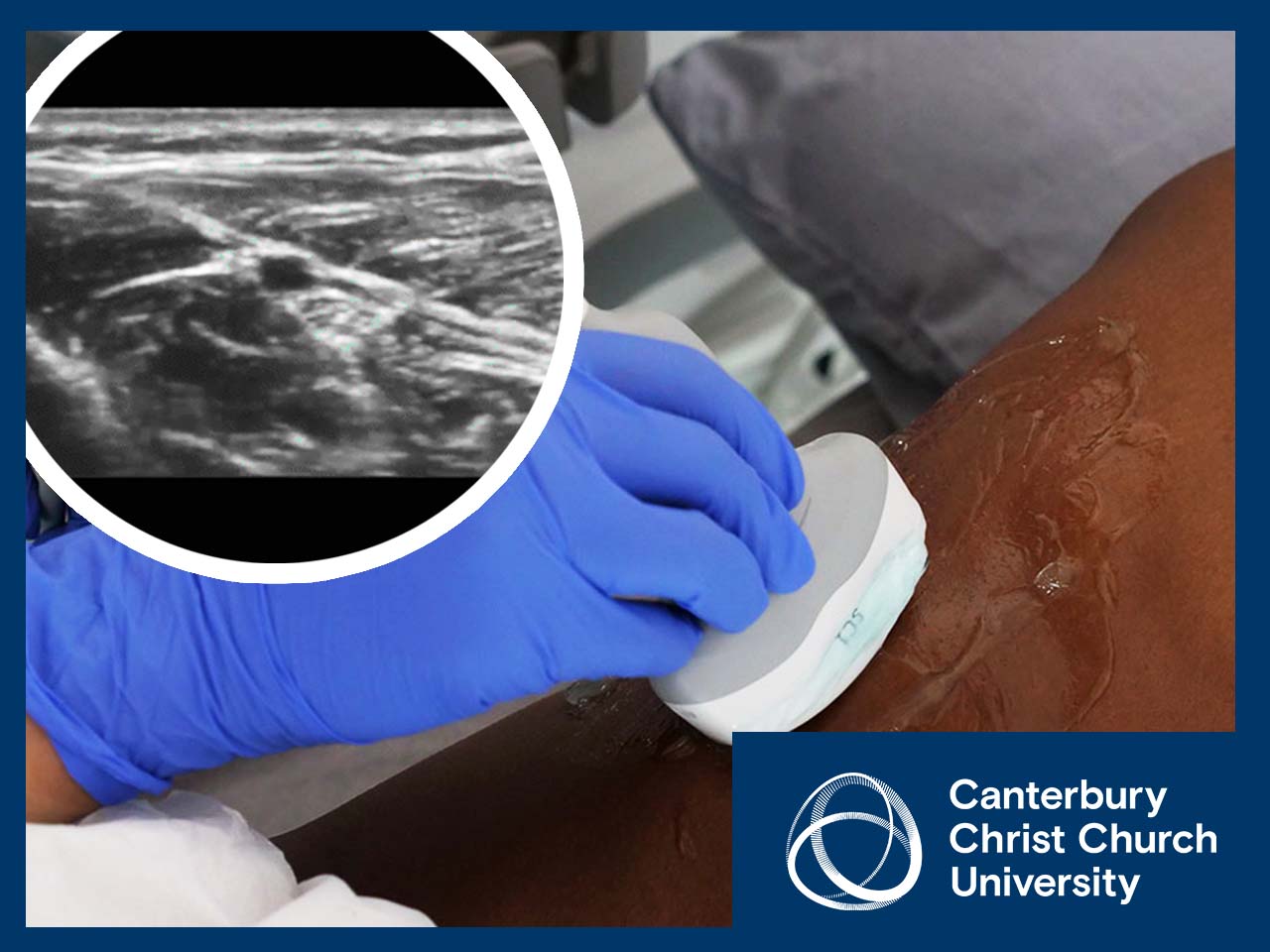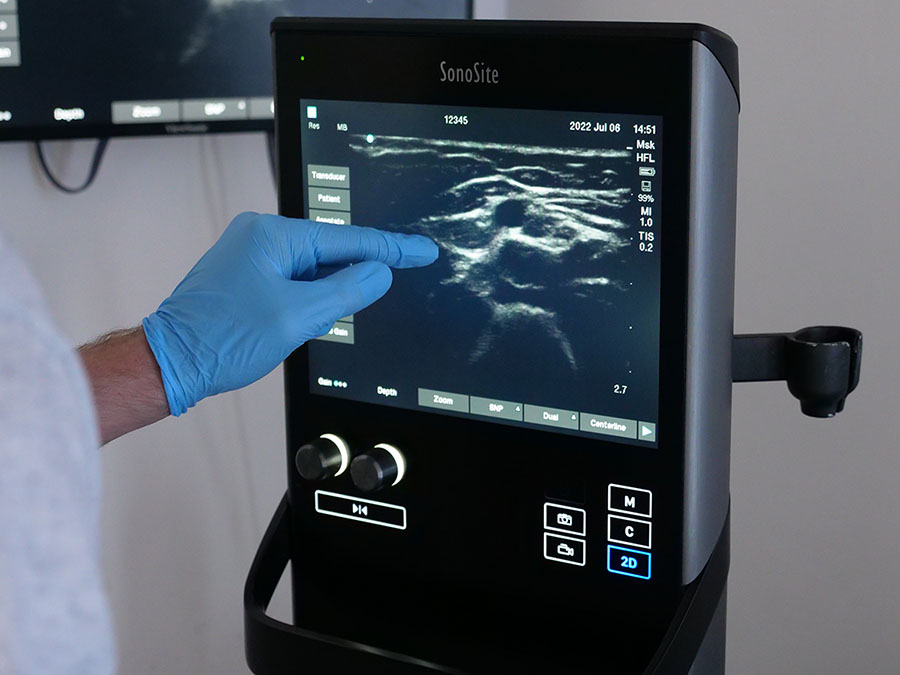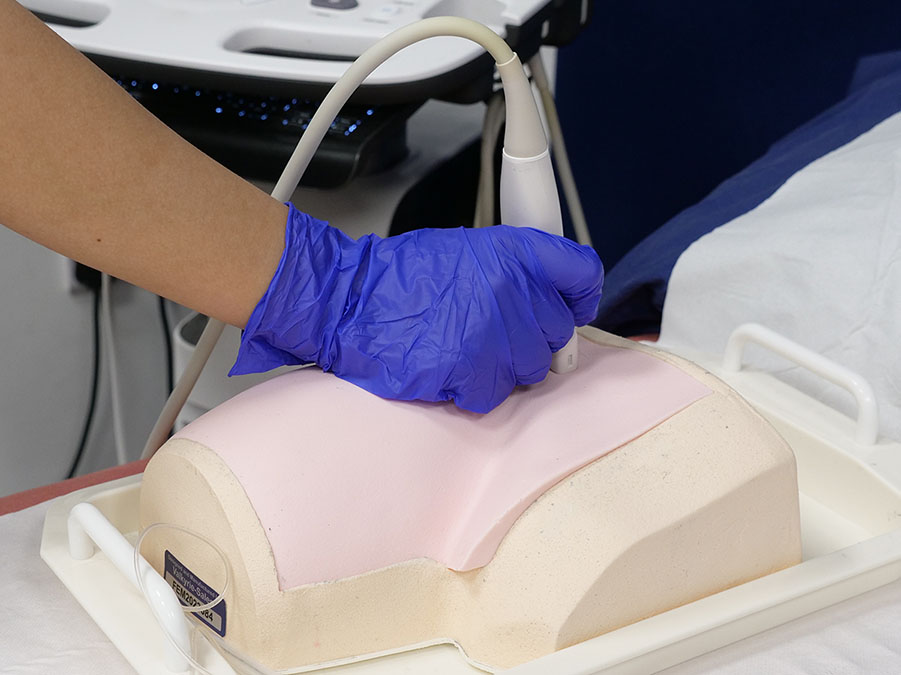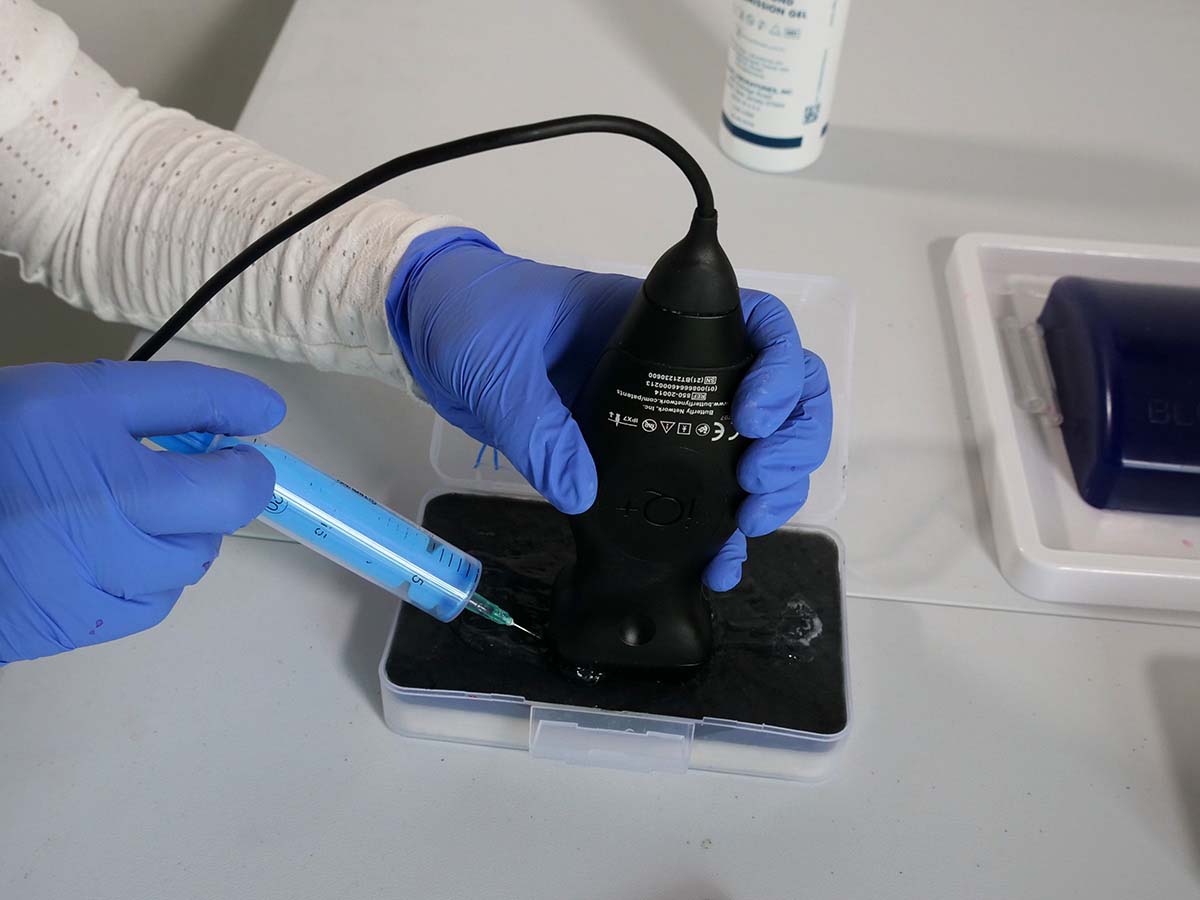Ultrasound Guided Nerve Blockade Micro-Credential (PgCert Module)
Our 10-week Ultrasound Guided Nerve Blockade course, offered in partnership with Canterbury Christ Church University, focuses on the use of ultrasound for procedures. The practical sessions involve acquiring skill and confidence in guiding a needle using ultrasound. The anatomy of key nerve blocks will be covered, including fascia-iliaca block, femoral nerve block, serratus anterior block and nerve blockade for distal radial fractures.
This micro-credential can be taken as a standalone course or as part of our PgCert in PoCUS programme. Click here to learn more about the other micro-credentials we offer.
Next term dates:18th September – 20th November 2025 (subject to availability)
Fee: £600

20 years of teaching EM and PoCUS courses
19 000 clinicians have taken our courses
4.9 out of 5 is our average Google review score
What is a micro-credential?
A micro-credential is a short, specific course of study, with an assessment which earns credits. The Credit Accumulation and Transfer Scheme is a national UK university scheme to allow credits to be earned and accumulated. For example, a typical postgraduate diploma is 120 credits, a typical PgCert is 60 credits. Each of our micro-credentials earns 10 credits, with each credit representing the notional equivalent of 10 hours of study.
What is the commitment?
Each micro-credential requires 100 hours of notional study, most of which will be self-directed learning. However, for micro-credentials with a practical component (all except Ultrasound Image Acquisition and Optimisation), you must also complete a minimum of 21 hours of in-person, hands-on training at our London-based training centre if this is your first micro-credential with us, or 15 hours if you have already attended one of our other micro-credentials. You can enrol on up to two micro-credentials per term.
What are the entry requirements?
- Professional Registration: Registered with the General Medical Council (GMC), Health & Care Professions Council (HCPC), or Nursing & Midwifery Council (NMC).
- Educational Background: A relevant first degree, such as MB BS (or equivalent), or a bachelor’s degree, ideally at first-class or 2:1 level.
- Clinical Experience: Current employment in an appropriate role within the NHS or a UK-based private healthcare provider, with evidence of basic ultrasound experience.



What does the Ultrasound Guided Nerve Blockade course cover?
- Medico-legal aspects – outlining the responsibility to practise within specific levels of competence and the requirements for training
- The value and role of departmental protocols
- Indications for examinations
- Patient information and preparation
- Relevance of ultrasound to other imaging modalities
- Informed consent
- Knowledge and understanding of relevant pharmacology
- Understanding of image acquisition and optimisation in relation to PoCUS applications of nerve blockade
- Scanning techniques, including the use of colour Doppler and methods of needle guidance for fascia iliaca block, femoral nerve block and serratus anterior block
- Understanding of normal and abnormal ultrasound appearances relevant to PoCUS for nerve blocks
- Principles of ultrasound-guided procedures
- Reporting the ultrasound scan and the outcome of the procedure
- The influence of ultrasound results on the need for other imaging
How is the course taught?
You will have access to video materials covering the theoretical content. Didactic teaching will be combined with practical face-to-face sessions, where you will use a range of ultrasound systems to develop scanning skills on normal volunteers. Additionally, simulators will be used to practise imaging and identifying various abnormalities.
You must complete the required number of in-person practical training hours for this module—21 hours if it’s your first, or 15 hours if you’ve previously completed another module—before your assessment day.
How will your skills of Ultrasound Guided Nerve Blockade be assessed?
The award of the micro-credential will require successful completion of both written and practical assessments. The knowledge content will be assessed through a multiple-choice examination using still images where appropriate. Practical skills will be assessed through obtaining optimal images on normal subjects and through obtaining optimal images of simulated pathology on simulators.
Schedule
The in-person training sessions will run from 9:30 am to 4:30 pm. Attendance on the first and last days (assessment day) is mandatory. Attendance on the second day is highly recommended to ensure you gain the foundational knowledge essential for further training. The remaining days are flexible. However, you must complete at least 21 hours of in-person training at our London-based centre for your first module, and 15 hours for each subsequent module, before the assessment day.
Autumn Term 2025 Schedule:
18th–19th September 2025 – core training days (18th September is mandatory)
16th–17th October 2025 – training days
6th–7th November 2025 – training days
20th November 2025 – assessment day (mandatory to attend)
An additional training day may be added if needed.
What doctors say about our PgCert and micro-credentials programme
Subscribe to our weekly newsletter for updates on Emergency Medicine and Ultrasound courses
*By proceeding you give your consent to be contacted via email with updates on courses and events by Bromley Emergency Courses. You may unsubscribe from these communications at any time. We will never share your details with 3rd parties and will only use your email to send you information about our upcoming courses and other offers.

